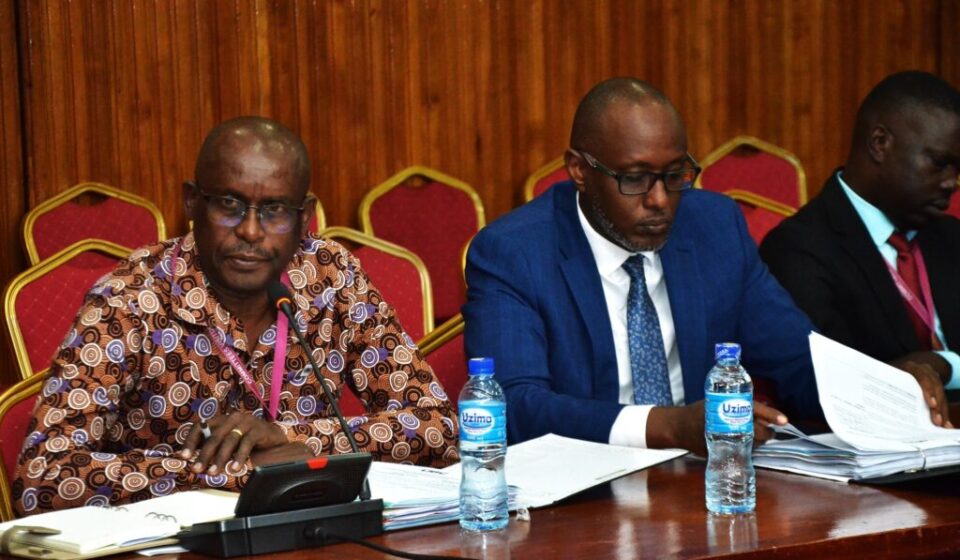By Our Reporter
Uganda Broadcasting Corporation (UBC) Managing Director Winston Agaba admitted to Parliament’s Committee of Commissions, Statutory Authorities & State Enterprises (COSASE) that he was unaware of four workers receiving salaries without performing any work. Agaba stated that he discovered this issue during a payroll audit by the Ministry of Public Service.
Appearing before COSASE, Agaba responded to MPs’ concerns about the payment of non-existent staff, irregular and underpayment of staff, and the multiple payrolls UBC operates, which MPs say leads to discrimination among staff.
“At the time of harmonizing the head count by Public Service, we were notified that some people were on the payroll of other agencies. We terminated those on our side, and the Inspectorate of Government (IGG) is handling the matter,” Agaba said.
Eddie Kwizera (Bukimbiri County) pressed UBC officials to provide a list and details of funds lost to ghost workers, as highlighted in the December 2023 report.
Kwizera stated, “The Auditor General mentions payment of non-existent employees, underpayment, and irregular payment, which can lead to corruption. Can you give us a list of those paid without working and explain why the Human Resource isn’t on interdiction?”
Documents presented to the Committee identified the ghost workers as Yosam Rugundana, Ssempa Kanakulya, Patrick Baligonzaki, and Christine Birungi Birabwa. The Committee learned that all three were removed from the payroll due to misconduct.
However, only Birungi is under investigation by the IGG, and plans are underway to recover funds from Kanakulya and Baligonzaki. No recovery plans are in place for Rugundana, who also serves as a Deputy Head Teacher in Nakasongola district.
Medard Sseggona (Busiro East) criticized the UBC’s response, saying, “You can’t just delete their names from the payroll. Is there any action in terms of recovery?”
MPs also questioned UBC’s operation of three payrolls, warning that it fosters discrimination among staff doing similar roles but receiving different pay, which could lead to legal issues for UBC.
Sseggona said, “You maintain three payrolls: one for permanent staff, one funded by the government, and one from your own sources. Doesn’t this create discrimination among employees?”
Agaba attributed the payment differences between TV, radio, and administrative staff to the government’s failure to fully fund UBC’s revamping, which was supposed to include salary enhancements for all staff. As a result, UBC prioritized TV and administrative staff, leaving out radio and casual laborers.
“The revamping started with TV staff. The government was supposed to fund the initiative for five years, but we only received funding for one year. This caused the discrepancy. The Board has recommended to the Minister to harmonize this and request that the government cover 100% of wages,” Agaba explained.
Sseggona warned that excluding other staff could result in legal liabilities for UBC, particularly when aggrieved staff leave the corporation.
Sseggona called for a meeting between the Ministry of Finance and the Ministry of ICT and National Guidance to address the salary discrimination among TV, radio, and administrative staff.
“The ultimate solution is making UBC a profitable venture. Don’t scatter your resources where you can’t perform efficiently. Those tempting you to spread should provide corresponding funding. Otherwise, we will face these issues year after year,” he concluded.
In January 2022, Parliament approved a government proposal to invest UGX9.047Bn in revamping UBC and vernacular newspapers, totaling Shs11Bn.
The funds were allocated for upgrading the dilapidated TV center in Kololo, implementing the Nation DT Hybrid Broadcast System, replacing antenna systems, and upgrading obsolete equipment at the National TV center in Kololo.

